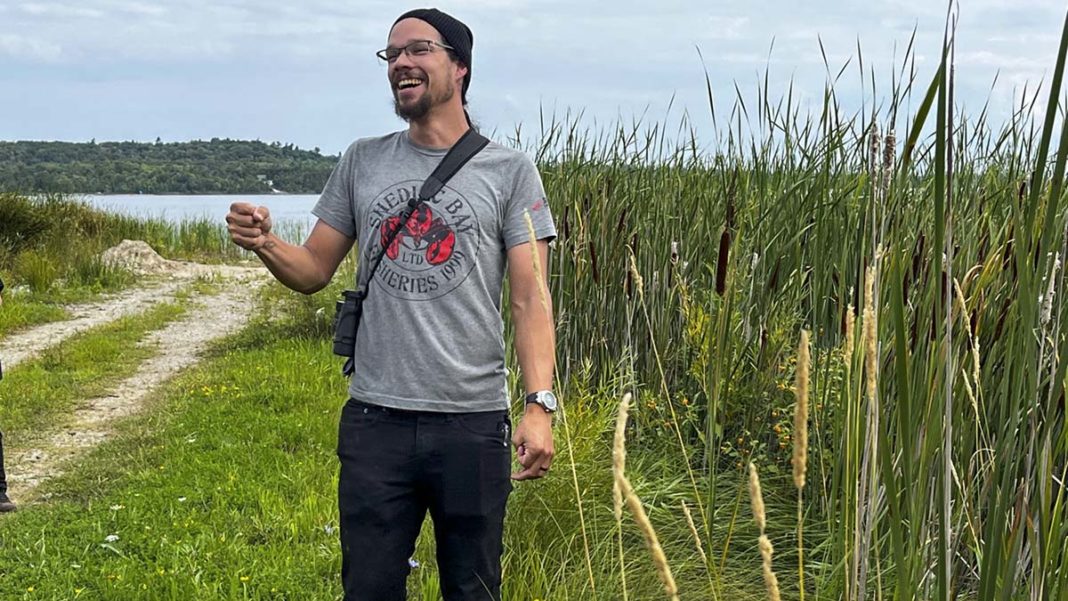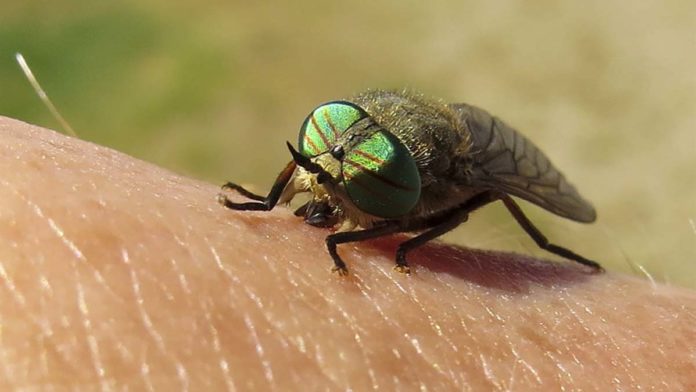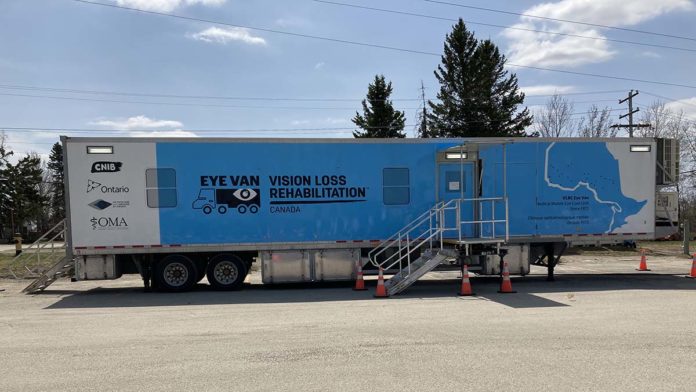SHEGUIANDAH—Mnaamodzawin Health Services wants to be known as a safe space for the 2SLGBTQ community. They participated in Sheshegwaning’s first annual Pride parade in June and other local events. They’ve hosted events, too, including a magic show, staff training days and an annual 2SLGBTQ conference. For Manitoulin Pride, event organizer Rebecca Milne, allied health manager for Mnaamodzawin decided to do something a little more traditional, with a medicine walk in Sheguiandah led by Joe Pitawanakwat.
“When you think medicine walk, who else are you going to call other than Joe Pitawanakwat?” she asked.
Mr. Pitawanakwat is the founder of Creators Garden. He’s originally from Wiikwemkoong but lives in Peterborough now with his wife and daughter. He started learning about medicines about 13 years ago, when he and his wife were spending time with his grandmother, listening to her stories. “I was just listening to stories,” he said. “I didn’t know I was learning.”
Listening became seeking, leading to more learning and which ultimately led to being known as the plant guy. Now Mr. Pitawanakwat is the storyteller, and a very entertaining one. Each person who attended the medicine walk left with a smile on their face.
He led the group of more than 30 supporters from Sheguiandah’s Roundhouse to an area near the water’s edge, surrounded by a cattail marsh on one side and a field of tall grasses and wildflowers on the other. What he didn’t do is immediately pick a plant and name its attributes.
He told a story instead. Because every plant has a story and that story becomes their identity. “It’s kind of funny. I was talking to my wife and I said, ‘who am I?’ My daughter right away said ‘Joe.’ That doesn’t make sense. It’s just a bunch of noise. I’m not Joe. We got into this really existential conversation.”
When you start thinking about who you really are, then what you begin to uncover is all of your gifts, he explained. “When somebody asks you who you are, you say ‘I’m Joe.’ But the second thing you ask is where did you go to school? What did you go to school for? Where do you work? What’s your job? What’s your gift? What are you an expert in? What do you love doing? This is what we do in any conversation with anybody. Sure, you can ask them what their name is and you can learn a lot about somebody just from their name, but the very next thing we do is try to uncover who this person really is. What’s your gift? What do you have to offer?”
If they don’t have anything to offer that you want you’ll probably forget about them, but if they have something to offer you that you want you will listen to their story, he said. “You’ll listen to their gift, their expertise and then what you will do is you will tell them all of your gifts, your expertise, everything that you love doing in the hope that they need you too because if they need you then you can get what you want.”
It’s the same thing with plants, Mr. Pitawanakwat said. “We ask what is its gift? What can it offer me? It’s very important to answer ourselves and ask how we can help it. You can be engaged in a relationship and just like when you want anything from anybody, you make yourself necessary to them.”
We have to understand our responsibility to all of these relationships, he said.
“When you start spending so much time with plants, you develop an intimate familiarity with it. I think one of the most important things to realize is how different everything is. Everything is different. So different.”
The most powerful way to learn about a plant is to spend time with the plant, he said. “You don’t need me holding your hand. Most of your learning is just going to happen between you and the plant itself.”
“Every single plant has a story that it’s telling you and I want to teach all of you how to listen to plants, how to understand what their story is so you can understand what their identity is, what gift they have to give you and then your responsibility then to that plant. The more of these responsibilities that you have, the more of these relationships that you have, the healthier you are going to be but the healthier they are going to be too. Everywhere that we go and everything that we interact with will become better.”





